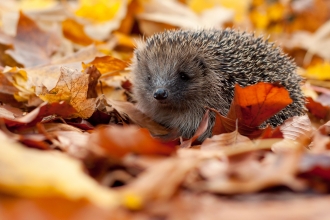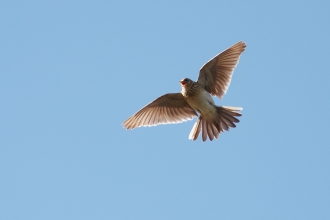Trustees
Dr Hilary Allison - Chair
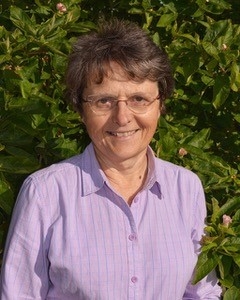
Dr Hilary Allison has spent most her professional career focusing on advocacy for one of her main passions, the protection, restoration, management and expansion of woodland, during her 25 years at the Woodland Trust and most recently following her government appointment as a non-executive Forestry Commissioner in June 2020. She began her career with the National Trust in East Anglia promoting its countryside and historic properties. She is a past chair of Wildlife and Countryside Link, and has held a number of other trustee and board roles over the years. She also has gained an international perspective through a spell at the UN Environment Programme World Conservation Monitoring Centre based in Cambridge, managing an expert team of scientists working on ecosystem assessment and biodiversity indicators. Newly semi-retired, she works as a freelance environmental consultant; she is also researching the history of women’s roles in the conservation movement and getting hands on with woodland management in her newly acquired small wood.
Michael Krause - Vice-Chair
Michael Krause
Michael Krause has worked in nature conservation charities, including Fauna and Flora International, Plantlife, the RSPB and the Yorkshire Wildlife Trust, for over twenty years. In that time, he has concentrated on fundraising, senior management and leadership, partnerships, finance and performance. Before that, he worked in business and the public sector, gaining experience in purchasing, business development, sales, finance and quality management. He now volunteers for the Wildlife Trust, the Bat Conservation Trust and East Africa Wildlife Society.
Jan Davis - Honorary Secretary
Jan Davis is an experienced Human Resources leader, specialising in developing managers in complex, global environments. She is a Chartered Fellow of the CIPD and has a Masters from Westminster University. Whilst specialising in people development, her responsibilities as a senior manager in the telecoms and energy sectors embraced all aspects of business.
After taking early retirement she focused on volunteering. The roles she chooses enable her to combine her organisational expertise with her interest in improving peoples’ wellbeing. As current Chair of Trustees of the Hunts Community Cancer Network (HCCN), she sees the activities of the charity making a real difference to local people living with a diagnosis of cancer.
Her interest in the natural world stems from a growing understanding of the health benefits and wellbeing that people derive from connecting with nature. Improving the emotional wellbeing of cancer patients for example is a key factor in enabling their survivorship. Rather than having a scientific background, her interest lies in conserving habitats and wildlife, and enabling people to connect with the natural environment.
Hannah Bartram - Honorary Treasurer
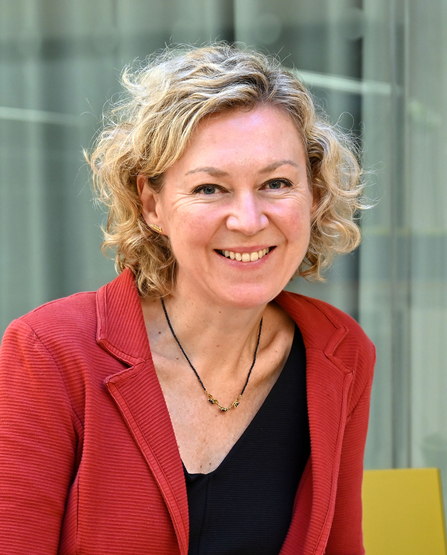
Hannah Bartram
Hannah Bartram has spent her professional career working in the public policy and environment sectors. She worked for the RSPB as a senior adviser on a range of domestic and European nature conservation issues, before moving to the Environment Agency. There she held a variety of national leadership roles covering land use, planning and housing, economic growth, climate change and flooding. She is currently the Chief Executive Officer for the Association of Directors of Environment, Economy, Planning & Transport (ADEPT), a voluntary membership organisation representing ‘place’ directors from county, unitary and combined authorities across England along with directors of Local Enterprise Partnerships and corporate partners drawn from key service sectors. She is always out walking Charlie the family dog in the fields and woods around Potton and loves seeing the local wildlife.
Professor Samuel Brockington – Chair of Conservation, Education & Community Committee
Professor Sam Brockington studied Plant Biology at the University of Edinburgh, before gaining a PhD at the Florida Museum of Natural History, USA. He is currently Professor of Evolution in the Department of Plant Science at University of Cambridge, Curator of the Cambridge University Botanic Garden, and Chair of the Strategic Research Initiative Collections-Connections-Communities. His research group pursue a variety of questions relating to the evolution of plant biodiversity, particularly within the flowering plant order Caryophyllales, where they primarily study the evolution of an unusual class of plant pigments called betalains. In his role as Curator, he is interested in how plant biodiversity is held and managed across the world’s ex-situ plant collections, and is leading a project on the evolution and conservation of wild tulips in Central Asia, in collaboration with Flora & Fauna International.
Caroline Brown
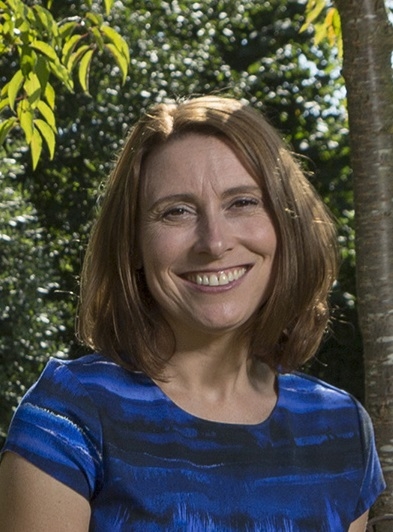
Caroline Brown
Caroline Brown has been a communications and marketing professional for 25 years. She began her career as a Government regional press officer, then worked in various Whitehall senior communications roles, advising ministers and policy officials on communications strategy and delivering behaviour change campaigns.
After leaving the civil service, Caroline was Communications Director at a leading independent school. She currently runs two marketing businesses in the Cambridge area, and is particularly interested in the application of behavioural economics to communications and marketing activity.
Caroline is passionate about the relationship between people and the natural world, and about encouraging stronger links for mutual benefit. She is also fascinated by soil and enjoys wasting time running pseudo-scientific experiments on her allotment.
Matthew Day
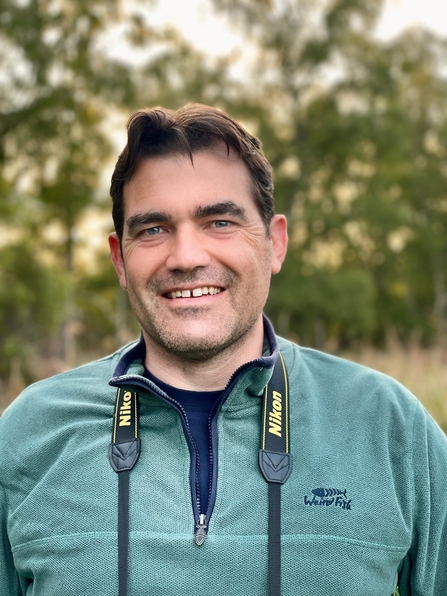
Matthew Day
Matt Day is an insurance and finance professional with 20 years’ experience working in strategy consulting, analytical and risk management roles. Throughout his career, he has focused on helping organisations define, evaluate and execute their strategic objectives.
He has a degree in Economics from the University of Leicester, focusing on Environmental Economics in his last year and dissertation. He also recently completed the ‘Business Sustainability Management’ course at the University of Cambridge Institute for Sustainable Leadership.
Growing up in Norfolk, Matt had an interest in wildlife and nature from a young age. Now, with a family of his own, they are active participants in many of the activities and volunteering opportunities the Wildlife Trust has to offer across the three counties, as well as regular visitors to reserves. He is a keen, but still learning, nature photographer and videographer.
Matt also coaches mini-Rugby in his spare time, placing a strong focus on teamwork, enjoyment and sportsmanship.
Kim Dunn
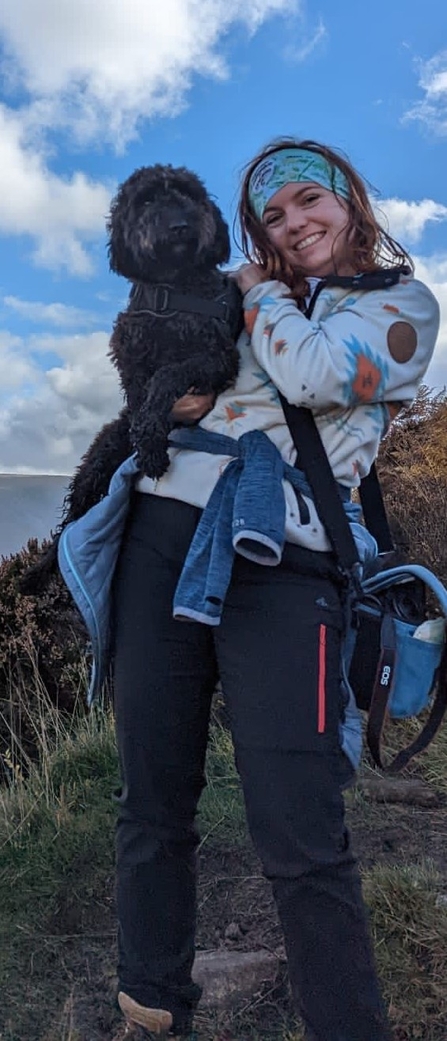
Kim Dunn
Kim Dunn currently works for RSPB in the Nature Positive Economy team. As an exploration geologist by background and, having spent the last few years at the interface of business and biodiversity within the eNGO sector, Kim has a unique perspective to how systemic changes are needed to meet the dual crisis of climate change and biodiversity loss. Kim believes her background gives her the chance to contribute to the biodiversity crisis in a holistic manner. She currently leads business advocacy work around the theme of becoming nature positive, developing communication materials, engagement pieces, frameworks and building relationships across sectors to drive businesses to embed nature into their strategies and contribute to a sustainable future for people and planet. Most recently, she has led the development and launch of the Save our Wild Isles business Films, designed to help businesses take action for nature.
Matthew Hayes
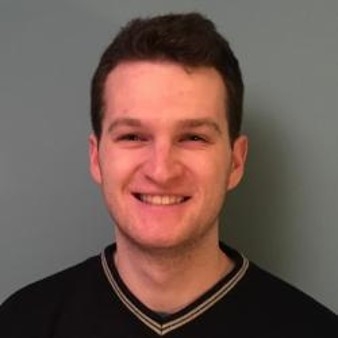
Matt Hayes
Matt Hayes studied Natural Sciences at Durham University before moving to Cambridge in 2016 to study for an MPhil in Zoology. It is here that he first worked alongside the WTBCN as his research was based on nature reserves in Bedfordshire, where he helped to conserve and better understand habitat requirements of endangered butterflies such as the Duke of Burgundy.
After completing his masters, Matt has worked as a Research Assistant at the University Museum of Zoology in Cambridge. His current project is partnered with the WTBCN, where he is aiming to engage new audiences with wildlife both past and present, using a combination of natural history museum collections and modern conservation initiatives. Matt is a member of the WTBCN Cambridge Local Group Committee, which organises talks and outings for interested parties, and in the summer of 2019, he also worked as a Trust Promotor.
In 2022, Matt started his PhD and will once again be working on WTBCN reserves, investigating how we can maintain suitable microclimates for species, as regional climates continue to change.
James Marsh
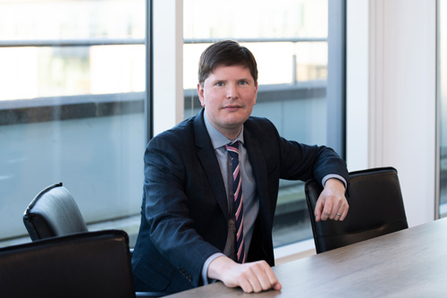
James Marsh
James Marsh is a Solicitor and joined his current firm, where he is Legal Director, in July 2021. He has 16+ years’ experience in wills, trusts, tax, probate, and estate planning.
James holds a BA Honours in History (Lancaster University) and an MA in Medieval History (University of York). During his MA, he held voluntary roles with the National Trust and York Minster. After completing his MA, James worked at RSPB’s head office. Although working in finance, he furthered his knowledge and skill set e.g., volunteering at Members’ events and talks.
James later retrained as a solicitor and completed the GDL and LPC at the College of Law. Since then, James has been a committee member of Cambridge Law Society and Cambridge STEP. James is also a trustee and board member of Cambridge Science Centre.
Outside of work, he enjoys music, photography, heritage, nature and conservation. He is a member of the Wildlife Trust BCN, the RSPB, the National Trust and Cambridge PPF.
Michael Samways

Michael Samways
Michael Samways has over 20 years’ experience within the environment, energy and sustainability fields and has worked in a variety of roles advising on strategy, policy and all phases of project and programme development, management and delivery. This has included asset and facilities management plans, business cases, financial modelling, due diligence, technical assessment, commercial finance and supply chain management for a wide range of projects.
Michael has held high profile roles for energy companies, national and local government and has many years consultancy experience. Additionally, he has advised the United Nations on post-disaster sustainable development including field missions around the world. Michael has presented at global conferences hosted by the UN and World Bank and has worked with chief officers and government ministers. He is a passionate and active volunteer in his local community and has served as a Parish Councillor for 10 years, as well as being a member of various committees scrutinising the work of the Local Authority.
Richard Vyse
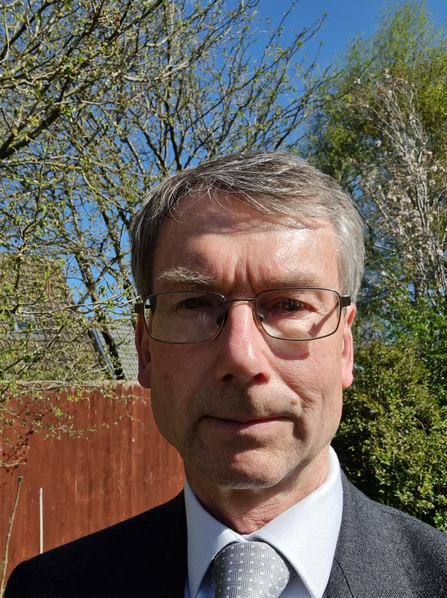
Richard Vyse
Richard Vyse developed his interest in wildlife as a child growing up in the Suffolk countryside. He enjoyed the rich variety of birds, including Lapwings, Fieldfare, Redwings and Skylarks, and spent many hours pond dipping in the local site where Natterjack Toads and Great Crested Newts thrived. Unfortunately, much of this area has been built on. This early experience inspired him to study Zoology at Manchester University, and he has also volunteered for Suffolk Wildlife Trust.
In 1981, Richard moved to Cambridge to work as an external Auditor for the Health Service and trained with the Association of Chartered Certified Accountants. He then worked for Cambridge Health Authority and after completing his accountancy qualification moved to an agricultural manufacturing company.
For the last 25 years Richard was Director of Finance for a contract electronics manufacturer in St Ives. Recently retired, he now has more time to work on his allotment and is keen to make use of his love of nature and experience in finance, to help the Wildlife Trust achieve its aims.
Conservation, Education & Community Committee (CECC)
Members of CECC who are not Trustees, but who lend their considerable expertise to the workings of the Trust
Dr Reiner Schulte
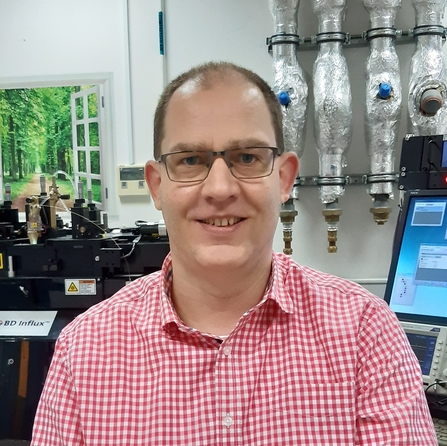
Dr Reiner Schulte
Dr Reiner Schulte is the Head of Flow Cytometry at the Cambridge Institute for Medical Research. He trained as a Biochemist and graduated in 2003 at the University of Jena, Germany. In 2007, he obtained a PhD (immunology) from the University of Goettingen, Germany, and worked as a postdoctoral researcher at the German Primate Centre, Goettingen, in the Unit of Infection Models where his research focussed on vaccine development and polychromatic flow cytometry. In 2009 he moved on to work as a Senior Scientific Officer in the flow cytometry core facility at the Cancer Research UK Cambridge Institute before taking on his current role in 2012. Dr Schulte has an interest in public engagement and community science. In 2021, he joined the Wildlife Trust’s Cambourne work party and became a volunteer warden in 2022. He organises the monthly work parties and acts as a volunteer contact to the Trust for his local community.
Resources Committee
Members of our Resources Committee who are not Trustees, but who lend their considerable expertise to the workings of the Trust
Rob Hall
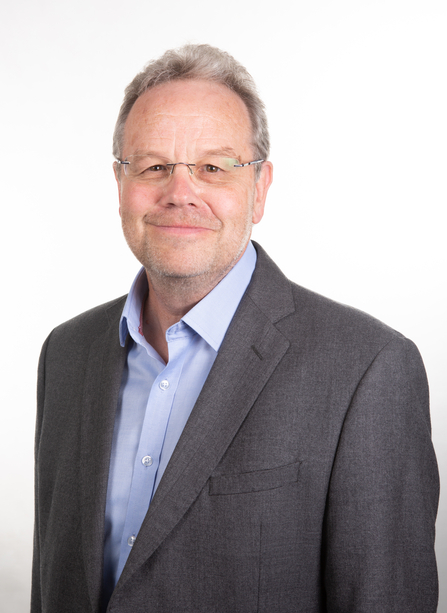
Rob Hall
Rob Hall holds a degree in Civil Engineering (University of Manchester) and is a Chartered Civil Engineer, Chartered Environmentalist and Member of the Institution of Civil Engineers.
Rob has over 30 years of development experience in both the Public and Private sectors. In the early part of his career Rob worked in Local Government in Northamptonshire and spent the remainder of his career working in Consultancy.
Rob has extensive experience in the project management and delivery of development projects.
Throughout his professional career Rob sought to balance the needs of development with a conscientious approach to mitigating impacts and seeking the best possible outcomes for sustainable development. Rob has also taken a leading role in the mentoring and professional development of colleagues and, prior to his retirement, Rob was a Professional Reviewer for the Institution of Civil Engineers.
Patron
Patron Baroness Young of Old Scone
Barbara, Baroness Young of Old Scone, is a former long-standing President who stepped down from that role in 2019. She is a Member of the House of Lords with special interests, among others, in the environment, agriculture, natural resources and climate change.
She has been Chairman of the Woodland Trust since 2016 and was appointed the Chairman of Council at the Royal Veterinary College in July 2019.
Her other voluntary positions include Honorary President of the South Georgia Heritage Trust; Patron of the Chartered Institute of Environmental Management; and Vice President of RSPB, Bird Life International and Flora and Fauna International. She has formerly held a variety of environmental leadership roles, including Chief Executive of RSPB, Chairman of English Nature and Chief Executive of the Environment Agency.
Baroness Young has also held leadership positions in health and social care, including management of health authorities in both Scotland and London. She was the founding Chairman of the Care Quality Commission and Chief Executive of health charity Diabetes UK.
Other posts she has held include Chancellor of Cranfield University, vice Chairman of the BBC and a non-executive director of AWG plc.
Baroness Young has a number of honorary designations and was elected an Honorary Fellow of the Royal Society of Edinburgh in 2017.
President
Professor Sir Partha Dasgupta
Professor Sir Partha Dasgupta is probably Britain’s leading environmental economist, and has lived in Cambridge since 1985. In February 2021, Sir Partha’s report The economics of biodiversity: The Dasgupta Review was published by HM Treasury and remains a highly influential piece of work in Westminster and beyond: Final Report - The Economics of Biodiversity: The Dasgupta Review - GOV.UK (www.gov.uk).
Sir Partha Dasgupta, was born in Dhaka (at that time in India) and educated in Varanasi, Delhi and Cambridge). He is Frank Ramsey Emeritus Professor of Economics at the University of Cambridge, Fellow of St John's College, Cambridge, and Professorial Research Fellow at the Sustainable Consumption Institute, University of Manchester. He taught at the London School of Economics during 1971-1984 and moved to the University of Cambridge in 1985 as Professor of Economics. During 1989-92 he was also Professor of Economics, Professor of Philosophy, and Director of the Program in Ethics in Society at Stanford University.
Professor Dasgupta's research interests have covered welfare and development economics, the economics of technological change, population, environmental and resource economics, the theory of games, the economics of undernutrition, and the economics of social capital. His publications include Economic Theory and Exhaustible Resources (Cambridge University Press, 1979); The Control of Resources (Harvard University Press, 1982); An Inquiry into Well-Being and Destitution (Clarendon Press, Oxford, 1993); Human Well-Being and the Natural Environment (Oxford University Press, 2001); and Economics: A Very Short Introduction (Oxford University Press, Oxford, 2007). He has a new book coming out with Penguin in spring 2025 on ecological economics.
He was appointed Knight Bachelor in the Queen’s Birthday Honours in 2002, for "services to economics" and a Fellow of the Royal Society in 2004. His other Fellowships and Honorary Memberships include British Academy, Pontifical Academy of Social Sciences, US National Academy of Sciences, the American Academy of Arts and Sciences, American Philosophical Society and Royal Swedish Academy of Sciences. He holds honorary doctorates from six universities.
He has been President of the European Economic Association (1999), the Royal Economic Society (1998-2001) and the European Association of Environmental and Resource Economics (2010-2011).

